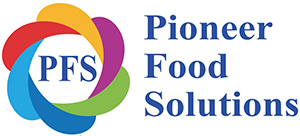Corporations need to understand the importance of technology and new business models that reduce food loss in the early stages of the supply-chain. Investments in the vibrant start-up ecosystem in India can also aid in addressing all the hindrances in the system with support of the latest logistics and supply chain technologies, blockchain, artificial intelligence, data monitoring, storage and packaging solutions. We can create great impact to the logistics value chain by discovering new solutions in association with pioneering start-up businesses.
Food Waste Management Solutions
Today if you are starting a business you need to be concerned about food waste. Today’s consumers and employees demand it. They want to know that your business is environmentally friendly and not wasteful.
Luckily for concerned business owners, there are now numerous viable solutions ready at hand.
Here are some of the most common and most effective ways to reduce or manage food waste levels in your business:
- Recycle by Composting: Food producers can solve 100% of their food waste problems by simply organizing an effective composting strategy. And doing so not only eliminates waste, it also saves you money because you don’t need to “outsource” your compost production.
- Turn Wasted Food into Animal Feed: Cultivating compost is one way to recycle food, but it can also be done in the bellies of cattle, sheep, pigs, and other livestock (themselves destined to become food).
- Use Waste Food to Produce Products: From bio-fuels to liquid fertilizer, there are many useful products that can be manufactured from certain kinds of waste foods. And often “left overs” of one company could be useful in another industry for the food scrap.
- Source Reduction: The simplest way to curtail food waste is to simply produce less whenever overproduction is clearly leading to waste.
- Food Donation: When excess foodstuffs are still safe to eat, they can be given to the hungry and the poor who find it difficult to afford sufficient food in today’s high-priced economy.
Food product growers, transporters, and sellers in the India can find realistic and even profitable ways to combat excessive food waste. Given the inefficiency of food waste and the humanitarian debacle of throwing away food while many go hungry, food waste management should be a top priority across a host of industries. more information
